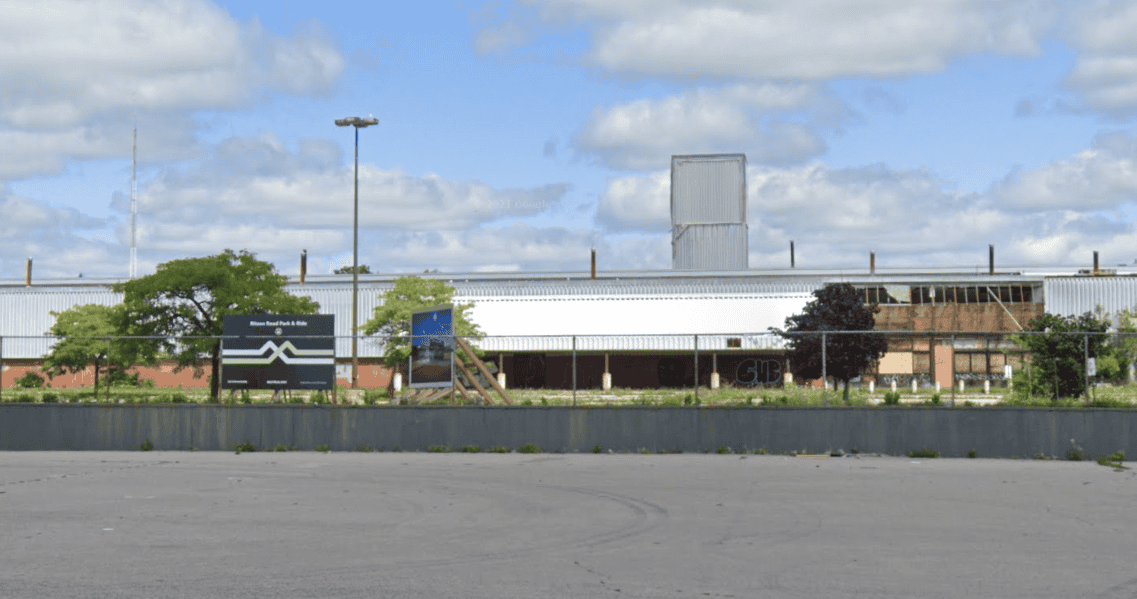GO Train line extension construction and historical preservation begins in Oshawa
Published July 23, 2024 at 11:11 am

Metrolinx is about to begin constructing the long-awaited GO Train extension from Oshawa to Bowmanville.
After years in the works and several recent months of preparation work, Metrolinx announced the beginning of construction on July 22. The crown agency bought 500 Howard Street way back in 2014 with a plan to use it to expand the line.
However, the approvals and process dragged on for years and the project is not expected to be complete for years more. During this delay, Ontario established part of the site as a heritage property due to two notable companies that operated on the property.
The first company to call the site home was the Ontario Malleable Iron Company founded in 1872. Ontario Malleable was founded by brothers John Cowan and William Cowan who immigrated to Canada from Ireland as children.
The Cowan boys first settled in Toronto before heading out to Oshawa. Initially, William Cowan operated a dry goods shop in town but John Cowan soon joined forces with his brother to establish Ontario Malleable as a large foundry.
The pair lived in a home at 118 Olive Avenue. While William Cowan married and had a son, John Cowan remained a lifelong bachelor. He lived with his brother’s family in Cowan House until his death. Tragically, the then-164-year-old home was demolished in 2022.
Hoping to bring jobs to the community, the then-town of Oshawa offered the Cowan brothers some incentive to move into town with the expectation they would hire locals. They soon employed 50 men in the foundry including some experienced workers from New York State.
Ontario Malleable launched as a Canadian source for agricultural tool casting which previously had to be imported from the United States. In time, the foundry became the largest of its kind in the country and by the turn of the century employed 800 men. This led Oshawa to gain the nickname “Manchester of Canada,” after the English city which served as the heart of the Industrial Revolution.
In 1895, a fire destroyed much of the site but it was quickly rebuilt. Ontario Malleable remained one of Oshawa’s most important industries dwarfing even the McLaughlin Carriage Company (which later joined General Motors) at the time.
In fact, Ontario Malleable supplied materials for McLaughlin for some time while the company was still based in Enniskillen. John Cowan eventually used his position as president of the local bank to lend Robert McLaughlin $3,000 to fund the company’s move to Oshawa.
John Cowan became one of Oshawa’s most influential figures of the era. He served on the Oshawa Hospital, Oshawa Library, and Children’s Shelter and was elected Mayor in 1887.
The foundry was one of several industrial locations (including McLaughlin) which were connected with an electric rail line around the turn of the century. When the First World War struck in 1914, the plant moved into making shells.
Years later in the Second World War, they made parts for the British Bren light machine gun. This weapon was very popular among British troops as a lighter, more reliable advancement on earlier designs. The guns saw use in the Western European and North African theatres.
Britain and Commonwealth allies continued to use the Brens in numous conflicts including; the Malayan Emergency (1948-1960), the Korean War (1950-53), the Mau Mau Uprising in Kenya (1952–1960), the Indonesia–Malaysia confrontation (1963 to 1966), the latter half of the Irish Troubles (1969–1998), the Falklands War (1982) and the early days of the First Gulf War (1991).
Throughout it’s history, Ontario Malleable was home to some of the earliest and most significant labour unrest in Oshawa’s history including major strikes in 1900, 1936 (which led to unionization), 1940, 1945 and 1966. After years of dwindling, the plant closed in 1977 which put the remaining 227 employees out of work.
Knob Hill Farms, a big box grocery store chain founded in Toronto, opened a location on the site in 1983. Grocer Steve Stavro launched Knob Hill from a single site on Danforth Avenue. It soon expanded into ten locations with Oshawa as the fourth.
The chain was among the most successful of its era but slowly lost ground in the GTA grocery market. Stavro announced all Knob Hill locations would close in 2000. The site has sat empty ever since.
However, that will soon change. Metrolinx is set to begin work on the site to build the Ritson Go Station the week of July 22. ” The plan for this project is to preserve the heritage component and demolish the warehouse to make way for future transit plans,” they wrote.
As early as July 24, crews will begin the work to preserve the areas of historical importance, avoiding the fate of the Cowan House. This includes some structural rehabilitation.
The crews will be on-site Monday to Friday from 7 a.m. to 4:30 p.m. They expect to create some significant noise, vibrations and dust. However, they have promised to mitigate these impacts to remain with by-law allowances.
The Bowmanville expansion will include four new stations on the Lakeshore East line; Thronton’s Corners, Ritson, Courtice and Bowmanville. However, the timeline for completion remains unclear.
In the meantime, Metrolinx is hosting several information sessions about the extension in libraries across the Region from July to August.
The Durham Community Engagement team are holding pop-ups across Durham this summer to answer your questions about GO Expansion and our Durham projects. Join us at a pop-up in your area and learn the latest about our projects! Grab some Metrolinx swag for you and the family! pic.twitter.com/FiUQkLQ3XR
— GO Expansion (@GOExpansion) July 22, 2024
INdurham's Editorial Standards and Policies





